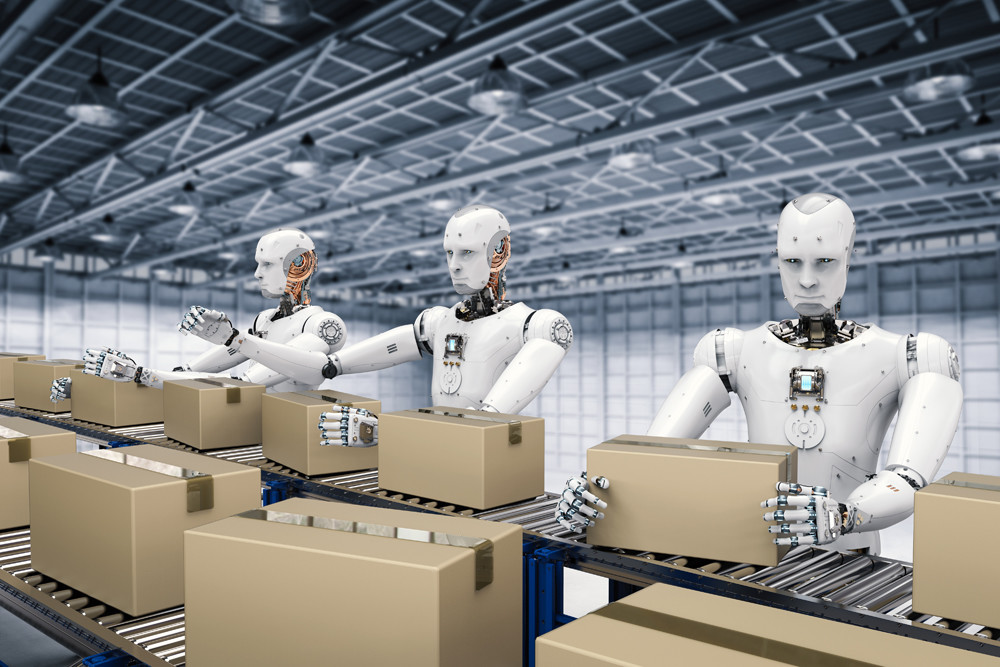Artificial Intelligence – Will AI soon also control the warehouse?
Facebook plans to use chatbots with AI personalities - AI algorithms help decipher the ancient Voynich manuscript - AI manipulates film scenes and swaps actors' faces at will
Major impact on the labor market
Bill Gates, Microsoft founder and IT pioneer, is predicting an AI revolution in the next 20 years that will completely revolutionize the job market. Activities that are still carried out by humans today can then be taken over by robots or software systems. This doesn't just apply to taxi or truck drivers, who could be replaced by autonomous driving systems in the near future. Professional fields such as clerks, tax consultants, lawyers and even doctors are also at risk of being affected by the upheavals. At the moment, not even researchers or IT experts can predict the speed and extent at which the new digital revolution will reach us. No wonder that there is great uncertainty given the forecasts. However, it is important to allay people's fear of artificial intelligence; With their help, many economic procedures and processes are improved and streamlined.
The logistics industry can benefit greatly from AI
What is certain is that the first major visible effects of AI transport logistics when the first self-driving trucks steer themselves along the highways. That doesn't mean that drivers have become obsolete. On the contrary, the development promises an extraordinary opportunity for their jobs to become more diverse in the future. Instead of driving along the motorways at 90 km/h as before, they can now take on administrative tasks and control the AI while driving. The industry as a whole also benefits because the AI algorithms ensure optimal truck utilization, the avoidance of empty runs and transparent prices for customers. Sleep breaks are reduced, which leads to further cost reductions. This means more journeys can be made at night, improving traffic flow and helping to reduce the load from busy times during the day. The improved management will mean that traffic jams can be better avoided in the future, which ultimately benefits all drivers.
AI ensures reliable forecasts in the warehouse
But it’s not just transport logistics that is affected by AI. Groundbreaking innovations are also emerging in the warehouse with artificial intelligence. So far, even in modern warehouses with automated retrieval systems , storage lifts and shuttles, relatively well-defined processes are still organized despite all the use of software. Although there are more and more autonomously operating driverless transport systems (AGVs) that move their loads independently through the warehouse, the use of AI could revolutionize the entire process chain in intralogistics. This is also necessary because, driven by the constantly growing e-commerce, ever more flexible and faster systems are required in order to overcome the growing challenges. This is where AI comes into play because it analyzes the processes based on the masses of available data and looks for ways in which the processes can be optimally organized.
The working principle of AI
- All information and current states are recorded in the AI database
- Integrated filters provide extremely quick access to unimaginable amounts of real-time information
- These are categorized according to their own (programmed) standards
- Information is no longer recognized and analyzed based on its content, but rather based on its patterns
- Based on the database, AI organizes answers and decides on actions
- The more new data flows in, the more the system “learns” (deep learning).
In intralogistics, predicting the probability of occurrence as precisely as possible will be one of the main tasks of AI. By analyzing order behavior, the AI system draws conclusions about future purchases, which leads to a faster shipping process. The result: Incoming customer orders are picked and prepared for dispatch before they are received. Amazon has been experimenting with refining this technology for years, which is particularly popular in times of same-day delivery if you want to get your orders to customers on time. Future fluctuations in demand should also be easier to predict and the storage systems should be prepared accordingly for increasing or decreasing quantities.
AI also supports predictive maintenance with forecasts about the remaining service life and optimal maintenance times of machines or device parts, which will have a positive impact on productivity in the warehouse. In this way, repairs or replacements can be planned at an early stage and arranged in such a way that they do not hinder the regular storage and provision processes. What previously led to the shutdown of entire systems during the day shift can now be carried out in a precisely determined period of time with low warehouse activity.
In the future, AI will mean that systems are programmed less and instead trained to learn better from the data and its behavior.
Anyone who now thinks that people will soon have no place at all in the camp can rest easy. Because despite all their intelligence, the systems must be monitored. In addition, we are not yet at the point where the storage facilities can be managed completely automatically, as robotics, for example, are not yet that advanced when it comes to gripping. It can still be considered certain that AI will also play a defining role in intralogistics. The crucial question is when she will be able to do this. The 20 years predicted by Bill Gates even seem a little long given the rapid technological development.


